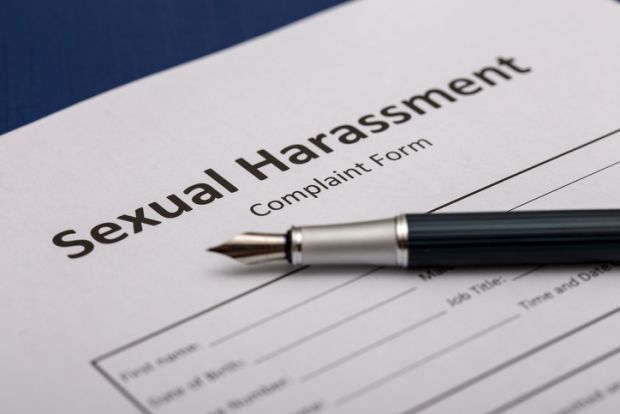Alondra Sierra
Isla Vista Beat Reporter
The UC Office of the President (UCOP) sent out proposed revisions to the Sexual Violence and Sexual Harassment Policy (SVSH Policy) last week, raising concern amongst students on the Title IX Student Advisory Board.
Jennifer Selvidge, UCSB Graduate Representative on the Title IX Student Advisory Board, reached out to The Bottom Line with the policy revisions. Among them include a new category of Prohibited Conduct, changes to the investigation time frame, and other minor revisions.
UCOP planned modifications to the Policy earlier this year in order to comply with requirements set by the Department of Education’s Office of Civil Rights’ (OCR) resolution agreement with UC Berkeley. The agreement was determined after UC Berkeley was placed under investigation for its policies and processes in handling sexual violence and sexual harassment.
A major concern for students continues to be the definition of sexual assault. As defined under the “Sexual Violence” category of SVSH Policy, the description of sexual assault remains relatively the same, despite repeated concerns brought up by the Student Advisory Board advising against the “queer exclusivity” of its definition, Selvidge said.
Under the revised policy, non-consensual penetration of “mouth by a penis” would be considered sexual assault, but non-consensual contact of vagina to mouth is excluded from the policy’s formal definition of sexual assault.
Instead, the revisions add a new set of actions in the “Other Prohibited Behavior” category, labeled “Other Nonconsensual Sexual Contact.” This includes “placing one’s nude intimate body part in Complainant’s mouth.” With this new section, non-consensual contact of vagina to mouth will remain exempt from the definition of sexual violence, differentiating sexual violence policies between queer and heterosexual or cisgender individuals.
Additionally, under the current policy, the sanction for penetrative sexual assault results in a two-year mandatory minimum suspension; other sexual contact will result in a one year minimum suspension, according to the Sexual Violence and Sexual Harassment Student Adjudication Framework.
The framework, included in the University-wide set of policies known as Policies Applying to Campus Activities, Organizations and Students (PACACOS), details measures and disciplinary sanctions given to those who have violated the SVSH policy.
“It creates a hierarchy, based on gender, of the types of sexual contact that are subject to sanctions,” Selvidge told The Bottom Line.
Other suggested revisions to the SVSH policy include changing the length for investigations from 60 business days to 60 to 90 business days.
In June, the California State Auditor found that, in their analysis of reports handled by UC Berkeley, UC Davis, and UCLA, more than half of SVSH investigations exceeded the 60-day time frame for completion. The report concerned UC’s response to sexual violence and sexual harassment complaints and recommended that UCOP “modify university policy to address investigation extensions.”
“The purpose of changing it would be to give students more realistic expectations of the time frame,” Selvidge said about the proposed timeline extension. “And while there is some reason to that, in my opinion, if you are not meeting the goal post that was set, that’s not a reason to move the goal post. It’s a reason to consider what is causing these investigations to go on so long.”
UCOP intends to begin the formal review process for the proposed revisions in “mid-September,” as stated in a letter sent out to the Student Advisory Board. The final revised policy will be delivered to OCR by Feb. 2019.
UCOP is currently accepting feedback on the proposed policy edits. If you have any questions or concerns related to the SVSH Policy, contact Jennifer Selvidge at selvidge@ucsb.edu.












However Sonia didn’t make any commitment.
Comments are closed.